The Gestalt XR takes the formula that Marin concocted for the standard Gestalt and gives it a serious shake up. Donning a super aggressive geometry and equipped with a very solid built kit for the cash, it proves that gravel can learn a thing or two from mountain bike design. With that, this bike is a weapon over flat surfaces and pushes what we know as ‘gravel’ even further, however, it's not perfect as its climbing ability is hindered by its gearing choices.
- Gravel bike racing – everything you need to know
- Ribble Gravel SL Pro review
- Will your next bike be a gravel bike?
Marin Gestalt XR - Technical details
The original Gestalt is a bike that Marin built to take riders off of the beaten path while confidently surviving the odd commute, too - all at an exceptionally budget-friendly price. Even though the Gestalt XR parades a similar name, it takes cues from its more traditional brethren and turns it on its head.
Whereas the Gestalt was introduced to happily accommodate gravel adventures, the Gestalt XR has been shaped to take riders even further thanks to a pretty radical geometry. Marin has gifted this bike with the 'long, slack and low’ phrase that we mountain bikers have seen over and over, and some measurements aren’t a stone's throw away from those found on modern cross-country bikes.
To put that into numbers, this medium frame on test gets a 440mm reach, a 67.5-degree head tube angle, and a 74-degree seat tube. With its 425mm chainstay, all of that results in a 1092.8mm wheelbase.
The Gestalt XR comes in four sizes: S, M (tested), L and XL.
The Gestalt XR is built around Marin’s Series 3 Beyond Road 6061 aluminium frame that’s paired with the brand’s full carbon fork with triple cage mounts at either side. Both accommodate flat-mount disc brakes and have mounts for fenders. The frame comes with mounts at the top tube and space for two water bottles in the front triangle. It’s also internally cable routed and I must say, it looks rather fetching. There’s also a threaded bottom bracket.
Apart from that, there are very few gimmicks, though the seat tube has been formed to allow clearance for up to 54x650b or 50x700c wheel and tyre combinations while retaining that short chainstay.
Marin Gestalt XR - Componentry
The Gestalt XR sits atop the Gestalt X family as the priciest and Marin has kitted it with a range of gravel-specific components. So draped on that aluminium frame is Shimano’s GRX groupset, including an RDX812 derailleur and hydraulic disc brakes that are paired with 160mm rotors. The cranks are FSA with the Gossamer Pro which makes home to a Megatooth 42t chainring. Finally, the cassette also comes from Shimano, offering 11-speeds with 11-42T gears.
This bike rolls on 700c wheels built from Marin’s own aluminium double-walled rims which are laced to forged aluminium alloy hubs, indicating a great place to shed some weight further down the line. Those wheels are wrapped with Vee Tire Co. Rocket Mans which are 44mm in width.
Marin clearly knows the intention of this bike and has been generous by equipping it with a 46cm wide bar that gets a 16-degee flare. Finishing off the build is a TransX dropper post with a Marin Beyond Road Concept Elite saddle, a nice touch.
I’ve yet to find a complaint with the Gestalt XR’s build kit and while I may have been a little skeptical about the Vee Tire Co tyres, they’ve actually impressed as they’ve offered reliable grip in a vast range of conditions while rolling very quickly thanks to a fairly uniform centre tread.
This built weighs in at 10.64kg.
Marin Gestalt XR - Performance
With its geometry being so relaxed, the Gestalt XR did take a little bit of getting used to, even if my off-road cycling roots are embedded in mountain biking. The bike has a long reach and a short stem, the norm in modern MTB, but when translated to gravel, it took a bit of time before I found myself properly comfortable with the bike. In fact, I needed to flick a switch in my head, reminding myself that the bike is shaped similar to an XC bike and once that realisation was made, I was able to start finding the limits of what this aggressive platform could offer.
Sat in the saddle, and planted on the hoods whilst pedalling over flat ground, it felt similar to most other gravel bikes out there. Though thanks to its long wheelbase that comes as a result of the slack head angle and lengthy reach, there’s absolutely tonnes of stability at the rider’s disposal.
There are two areas where the bike’s aggro geometry really excels, and that’s on the flats and on the descents. During the former, the incredibly stable nature of this bike at speeds takes part of the work away as it’s very easy to keep directed in a straight line. Not having to make corrections for twitchy or over-responsive steering allowed me to focus on my cadence, keep aero, and avoid potholes when necessary.
It’s during these fire road jaunts where the thin seat stays, flexy saddle, and voluminous tyres come into play as the Gestalt XR’s rear end is rather forgiving. Whilst hurtling over fire roads, the bike rustled up a welcome level of comfort that effectively absorbs trail chatter and polishes the edge off of harder, misjudged potholes. The bike’s comfort came with very little sacrifice to its efficiency too, which boosts its performance on the flats even more so. Shleps over flatter terrain are rewarded with excellent comfort, stability, and speed.
This bike’s mountain bike-esque geometry really opens up what gravel can be as it’s certainly not shy of steeper gradients, or the odd bit of singletrack. The Gestalt XR’s heft of stability turns into calm, considered, and very well-mannered cornering. It does take more effort to get the bike turning at speed though, but I would rather benefit from the level of predictability and sure-footedness, rather than compete with a twitchy front end.
While considered, this bike’s character when cornering is far from lethargic as the short 425mm chainstay keeps things lively, adding a hint of flickability as well as a fun and rewarding demeanor.
When pushed down something steeper and more technical, the Gestalt XR takes it all well within its stride. Its slack head angle supports the front end and drives the front wheel over bumps, keeping the momentum coming and to a degree, smoothing out the ride.
Through the steeps and hitting singletrack is where the mountain bike-inspired geometry really makes sense, and rightfully so. All it takes is good line choice, and a hint of commitment, then just leave it to the bike to confidently hustle over and through sections I previously thought would be a nightmare aboard a bike with skinny tyres, and no suspension.
Even though its still considered somewhat of a taboo in the world of gravel, kitting the bike with a dropper post is an incredibly wise decision, considering the kind of trouble it can get you into. Having the ability to drop the saddle not only gets it well out of the way when getting extra rowdy, it provides an excellent opportunity to drop body weight and move it fore an aft on the bike more freely. Gravel purists may shun Marin’s inclusion of a dropper post, but the Gestalt XR is far from a pure gravel bike.
With all of this, the Gestalt XR has surprised me with how versatile it really is, especially with mounts at either side of the fork, and on the top tube which hints towards bikepacking ability too, though riders will have to be clever when loading the bike as there's not an awful lot of room in the front triangle for water and a frame bag.
This aside, I've been able to push the bike through trails that I would usually take on aboard my full-suspension mountain bike with absolute confidence. But thanks to its capability to summon up respectable speed and comfort on the flats, it's one bike that can do an awful lot.
Although the Gestalt XR shows true prowess when at speed, it’s not without a couple of caveats, one of which is that the front end is pretty stiff. Rattling down extended rocky trails has had me left with some rather painful arm pump, and sometimes it has reduced control over the bike as harsher hits have led to the brake levers braking free from under my fingers. This is a fairly easy fix however, done by simply replacing the stock handlebar with something a little more flexible, double wrapping bar tape, or going down the route of buying a RedShift ShockStop stem, or similar. But as it stands, it would be great to see a more compliant bar on a bike that encourages such a level of hooliganism.
And while this bike is incredibly capable going down, going up is a bit of a different story. Marin has specced it with an 11-42T cassette combined with a 42T chainring and for me at least, it’s made the bike quite a pig to crank up a hill. Then when the ascents get a little steeper, the front end requires a bit of attention in order to keep the tyre glued to the ground. Front-wheel lift is something of an irregularity, however, and thankfully, a smaller chainring won’t set you back too much but it’s definitely a case of moulding the bike to your preferences post-purchase. Kitting the bike with a smaller chainring would make it ideal for winch and plummet sessions, whereas keeping the 42t ring makes it a speed machine with a hunger for kilometres.
Marin Gestalt XR - Value and verdict
At this just over £2k price point, there’s a lot going on but even then, the Marin Gestalt XR is looking right on the money, though not totally mind-blowing value.
It does beat Specialized’s Diverge Comp E5 to the punch. At £2,500 it boasts SRAM Apex shifting with AXIS Elite disc wheels and an aluminium frame with a carbon fork. Though as you might expect, it’s geometry is far more traditional.
Canyon’s Grail 7 eTap comes in as strong competition for Marin’s aggro graveller as it rocks SRAM Rival XPLR eTap AXS for just £155 more. But again, it doesn’t have the geometry of the Gestalt XR, which is what you’re really buying into with this bike.
Marin’s Gestalt XR is a gravel bike that breaks the mould thanks to its progressive but well-considered shape. If you’re a mountain biker who’s looking to add a gravel bike to the fleet but doesn’t want to compromise descending performance, this bike is exactly that. Saying that, the bike's level of versatility makes it one that will be appreciated by anyone who strives for all-out stability and speed, but also welcoming to those who want to push the boundaries of gravel that bit further. Though climbing prowess would be improved with a wider range cassette or smaller chainring.
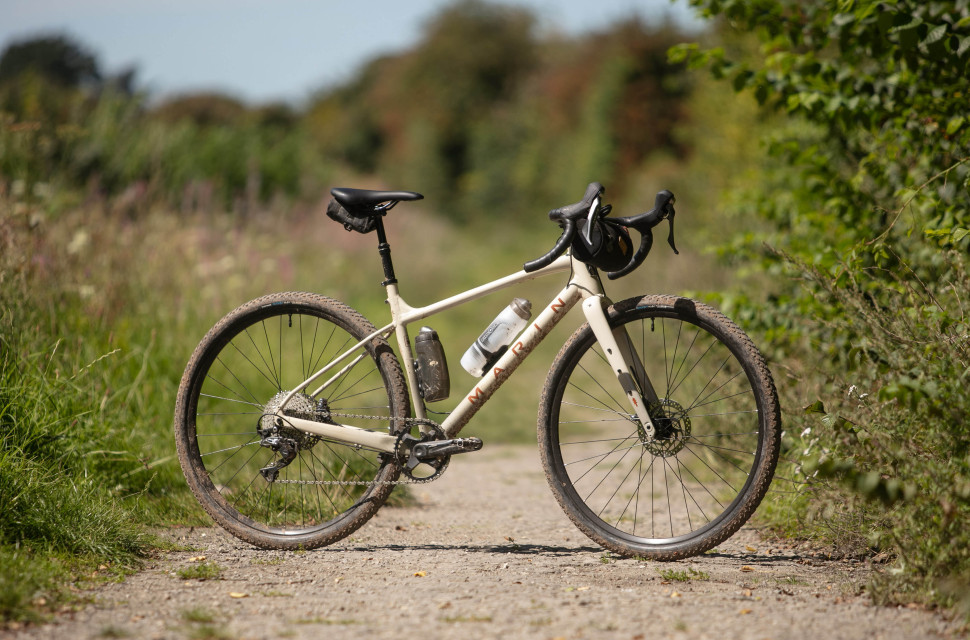
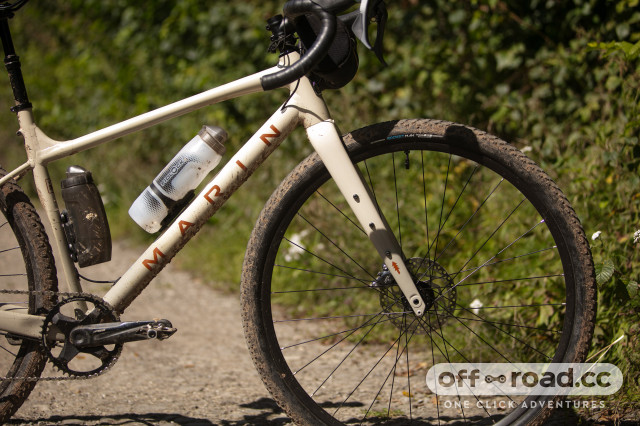

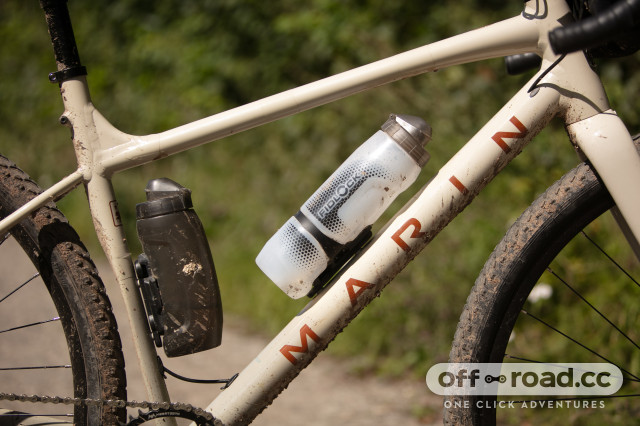
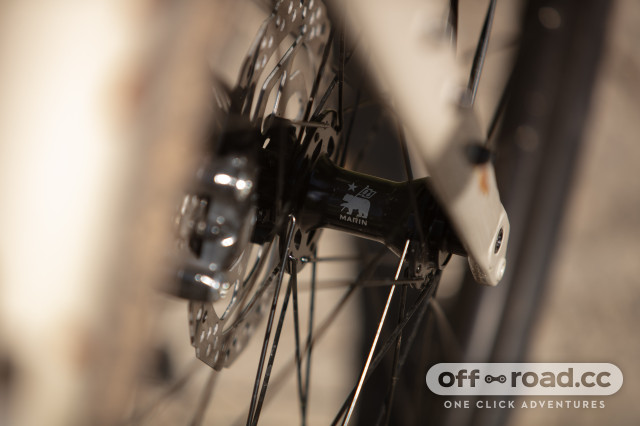
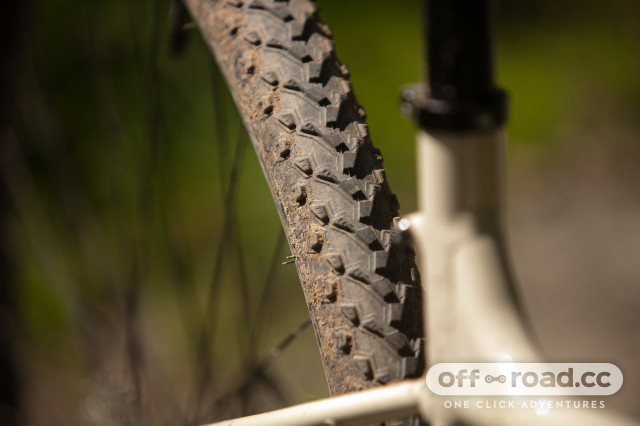
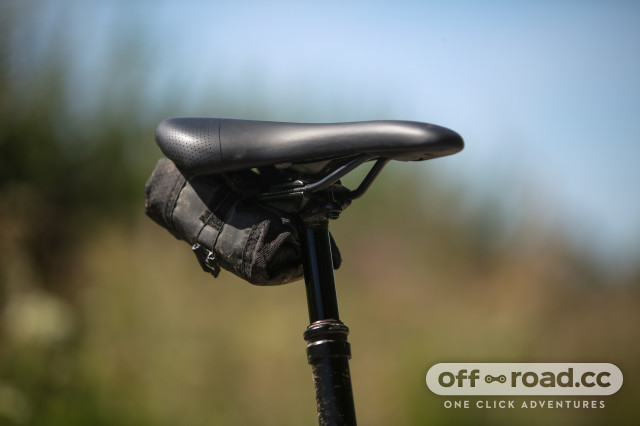

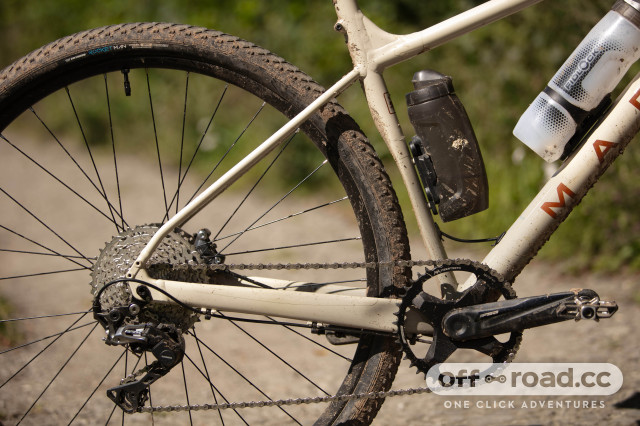
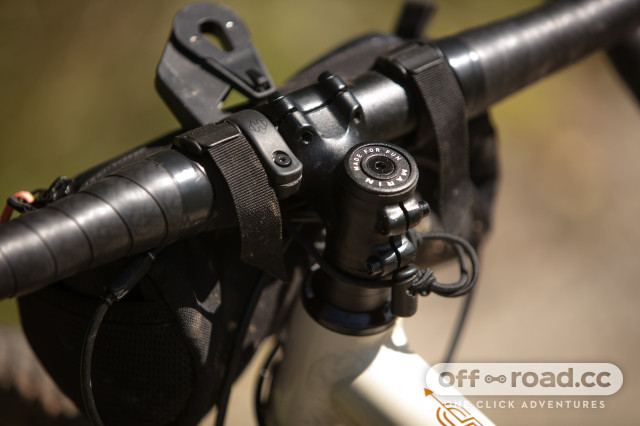
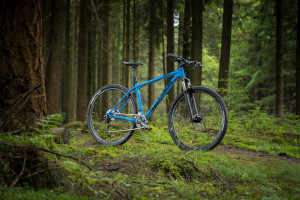

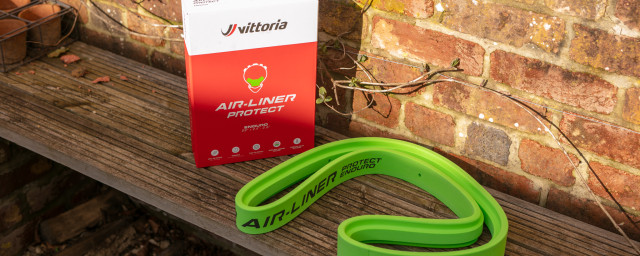
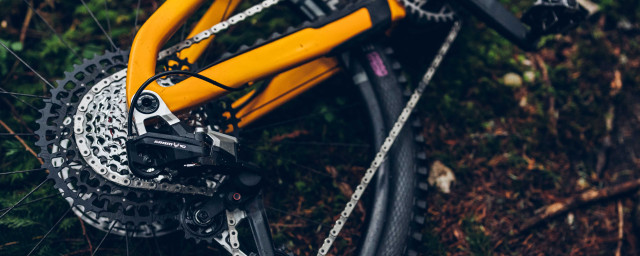

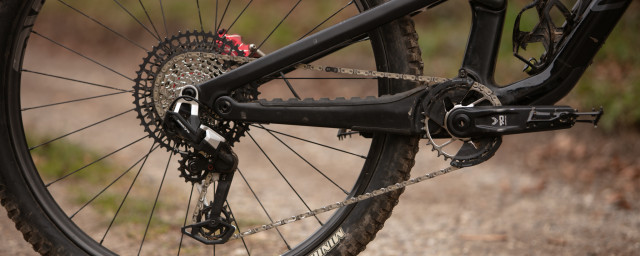
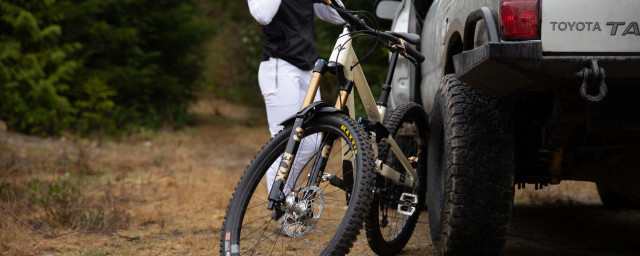
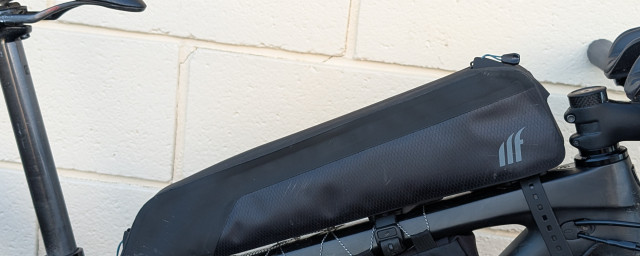
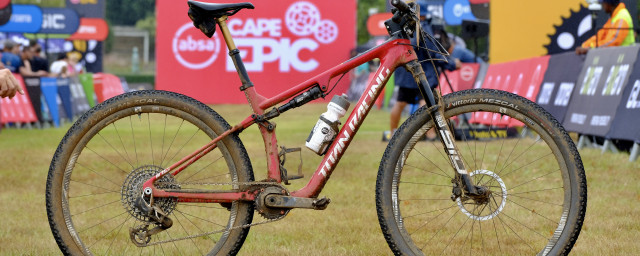
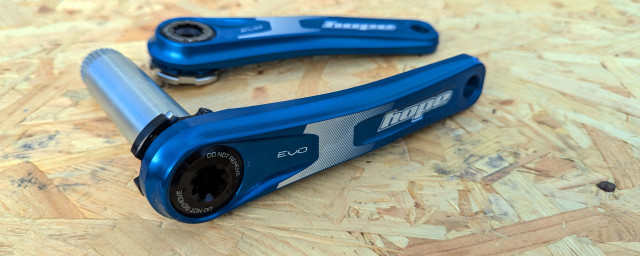
Add comment